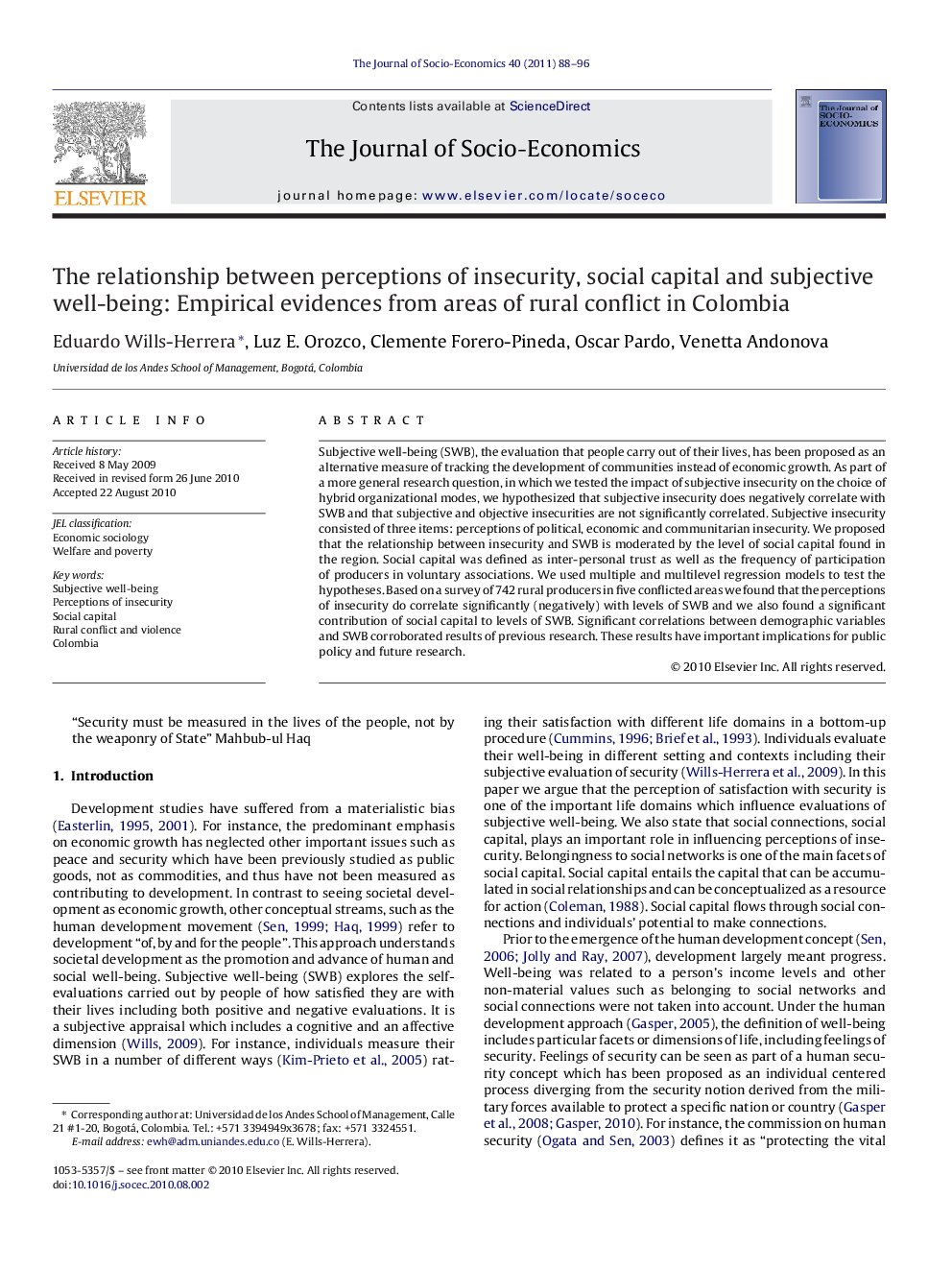| کد مقاله | کد نشریه | سال انتشار | مقاله انگلیسی | نسخه تمام متن |
|---|---|---|---|---|
| 970119 | 1479548 | 2011 | 9 صفحه PDF | دانلود رایگان |

Subjective well-being (SWB), the evaluation that people carry out of their lives, has been proposed as an alternative measure of tracking the development of communities instead of economic growth. As part of a more general research question, in which we tested the impact of subjective insecurity on the choice of hybrid organizational modes, we hypothesized that subjective insecurity does negatively correlate with SWB and that subjective and objective insecurities are not significantly correlated. Subjective insecurity consisted of three items: perceptions of political, economic and communitarian insecurity. We proposed that the relationship between insecurity and SWB is moderated by the level of social capital found in the region. Social capital was defined as inter-personal trust as well as the frequency of participation of producers in voluntary associations. We used multiple and multilevel regression models to test the hypotheses. Based on a survey of 742 rural producers in five conflicted areas we found that the perceptions of insecurity do correlate significantly (negatively) with levels of SWB and we also found a significant contribution of social capital to levels of SWB. Significant correlations between demographic variables and SWB corroborated results of previous research. These results have important implications for public policy and future research.
Research highlights▶ This article is the first to establish a significant relationship between perceptions of insecurity, social capital and subjective well-being. ▶ Our sample of 742 observations allowed us to develop a multiple regression model with a low size effect and high power, near to 80%. ▶ Thus we developed a robust model about the relationships between SWB, subjective insecurity and social capital. ▶ We used a multilevel hierarchical regression model which involves individual, local and regional variables. ▶ We showed that subjective perceptions of insecurity do not correlate significantly with objective data of violent events. ▶ We showed that it is possible to identify different types of perceptions of insecurity (personal, political, communitarian, economic). ▶ We highlight the importance of subjective well being measures as complements to more traditional objective development indicators. ▶ We framed our discussion in terms of a human security discussion. ▶ We think that results may be replicated in conflicting regions of other countries in the world (Latin America, Afghanistan, eastern Eurpo).
Journal: The Journal of Socio-Economics - Volume 40, Issue 1, February 2011, Pages 88–96